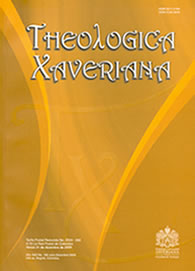Abstract
This article challenges popular and sometimes academic ideas regarding the importance of ethnicity for the identity of the people of God in the Bible. It seeks to demonstrate through the study of some key biblical narratives that ethnicity is irrelevant when it comes to belonging to the people of God even in the Old Testament. This article reviews stories in the Old and New Testaments where «outsiders» become part of the people of God and «insiders» are excluded. The article concludes that both as a theological concept and as a practical reality the people of God is multi-racial and multiethnic from the very beginning.
This journal is registered under a Creative Commons Attribution 4.0 International Public License. Thus, this work may be reproduced, distributed, and publicly shared in digital format, as long as the names of the authors and Pontificia Universidad Javeriana are acknowledged. Others are allowed to quote, adapt, transform, auto-archive, republish, and create based on this material, for any purpose (even commercial ones), provided the authorship is duly acknowledged, a link to the original work is provided, and it is specified if changes have been made. Pontificia Universidad Javeriana does not hold the rights of published works and the authors are solely responsible for the contents of their works; they keep the moral, intellectual, privacy, and publicity rights.
Approving the intervention of the work (review, copy-editing, translation, layout) and the following outreach, are granted through an use license and not through an assignment of rights. This means the journal and Pontificia Universidad Javeriana cannot be held responsible for any ethical malpractice by the authors. As a consequence of the protection granted by the use license, the journal is not required to publish recantations or modify information already published, unless the errata stems from the editorial management process. Publishing contents in this journal does not generate royalties for contributors.


